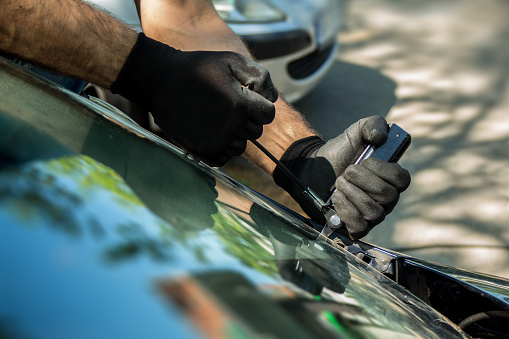Overcome Car Troubles With These Auto Repair Tips
If you've ever faced auto repairs with a hopeless expression, then you're not alone. It's not fun dealing with things that go wrong with your vehicle because they can prove rather costly. However, knowing the best things to do in those situations can help you immensely. Keep reading to learn more about auto repair.
When trying to get an estimate for the cost of your auto repairs, ask the technician how they calculate the cost. There are some shops that charge your a flat rate for parts and labors, but others will try and charge you a fee for each hour they spend fixing your car.
To keep rust from becoming an issue, wash and wax your car regularly. All cars will rust up eventually, but you may delay it considerably by ensuring all chemicals and salts are washed off quickly. Make sure you regularly wax your car so that you protect the paint.
If you are having work done on your car, make sure you get a written estimate beforehand. The estimate should include what is being repaired, the parts that will be needed and the anticipated cost for labor. It should also say that they will call for your approval before doing any additional work which exceeds the amount or time specified.
Ask a technician if they are A.S.E. certified before you agree to have them work on your vehicle. If they have this certification, it means they have passed a written test and have worked in the industry for at least 2 years. You will know that you are getting someone skilled by choosing someone with this.
If you need to get your car fixed after an accident, you should contact your insurance to get a list of approved mechanics. Going to an approved mechanic means your insurance will cover some of your expenses. Besides, you are more likely to find a good certified mechanic if you go to a professional chosen by your insurance company.
Know your car before taking it in for any auto repairs. If you have little knowledge on the specs of your model car, you may end up being taken for a ride without you knowing it. Read through your manual at the bare minimum before going for any larger repairs.
There are no standard warranties on repairs. Make sure you are aware of what your warranty covers and that you have it in writing. Warranties may have limitations such as deductibles, mileage, time, businesses authorized to do the warranty work or special steps needed to get reimbursement. Know your warranty rights.
Learn how to perform basic maintenance on your vehicle. It is very easy to do a tune up or change your oil so there really is no reason to bring your car to an auto repair shop to have these things done. Instead, just watch tutorials online to learn what you need to do it on your own.
Keep washing your vehicle, even in winter. Although you may feel like the car just gets dirty again right after cleaning it, the winter weather is harsh on your vehicle. Roads filled with sand and salt can really do some corrosive damage to your car. After washing your car, dry it thoroughly to prevent ice formation.
If your car needs body work, make sure you know what color paint you have on your vehicle. This information is important for the technician that works on your car. Also, your vehicle identification number is always something good to have on hand. In many cases, you will have to have it just to set up an appointment.
When it is time to bring your car in for work, think carefully about whether you want to go to the dealer or a local repairman. The dealer often knows the most about your particular type of vehicle, but they generally cost the most as a result. Weigh your options and go with what is right for you.
Make sure that the auto repair shop you go to offers a warranty on their services. There are plenty of repair shops that will do a shoddy job, and there is nothing you can do about that if you have no warranty. A warranty will give you the opportunity to get the problem fixed for no charge.
Don't allow auto mechanics to persuade you that getting an engine flushed is normal maintenance. Flushing your engine is generally unnecessary unless you've subjected it to great abuse, (like a long time between oil changes) and it's simply too expensive to purchase unless your car really needs it.
Hopefully this article has helped you gain a firmer grasp on how to handle auto repairs in the future. It's important that you make the right decisions so that you can enjoy your car. No one wants to constantly worry about what to do when something goes wrong with their vehicle.

